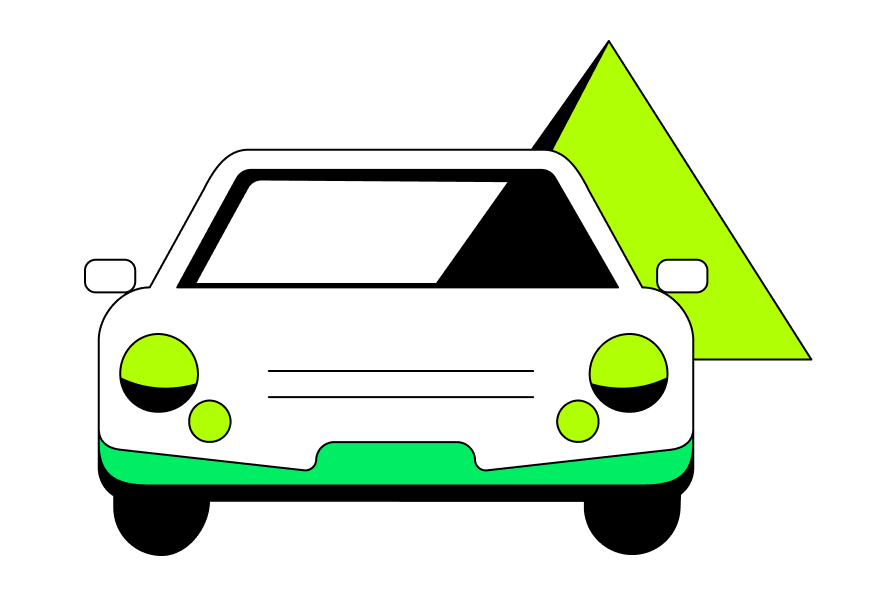BAIC Group Powers the Internet of Vehicles With MongoDB
The Internet of Vehicles (IoV) is revolutionizing the automotive industry by connecting vehicles to the Internet. Vehicle sensors generate a wealth of data, affording manufacturers, vehicle owners, and traffic departments deep insights. This unlocks new business opportunities and enhances service experiences for both enterprises and consumers.
BAIC Research Institute, a subsidiary of Beijing Automotive Group Co. (BAIC Group), is a backbone enterprise of the Chinese auto industry. Headquartered in Beijing, BAIC Group is involved in everything from R&D and manufacturing of vehicles and parts to the automobile service trade, comprehensive traveling services, financing, and investments. BAIC Group is a Fortune Global 500 company with more than 67 billion USD of annual revenue.
The Institute is also heavily invested in the IoV industry. It plays a pivotal role in the research and development of the two major independent passenger vehicle products in China: Arcfox and Beijing Automotive. It is also actively involved in building vehicle electronic architecture, intelligent vehicle controls, smart cockpit systems, and smart driving technologies.
To harness cutting-edge, data-driven technologies such as cloud computing, the Internet of Things, and big data, the Institute has built a comprehensive IoV cloud platform based on ApsaraDB for MongoDB. The platform collects, processes, and analyzes data generated by over a million vehicles, providing intelligent and personalized services to vehicle owners, automotive companies, and traffic management departments.
At MongoDB.local Beijing in September 2024, BAIC Group’s Deputy Chief Engineer Chungang Zuo said that the BAIC IoV cloud platform facilitates data access for over a million vehicles. It also supports online services for hundreds of thousands of vehicles.

Data technology acts as a key factor for IoV development
With a rapid increase of vehicle ownership in recent years, the volume of data on BAIC Group’s IoV cloud platform quickly surged. This led to several data management challenges, namely the need to handle the following:
-
Large data volumes
-
High update frequencies
-
Complex data formats
-
High data concurrency
-
Low query efficiency
-
Data security issues
The IoV platform also needed to support automotive manufacturers who must centrally store and manage a large amount of diverse transactional data. Finally, the platform is needed to enable manufacturers to leverage AI and analytical capabilities to interpret and create value from this data.
BAIC Group’s IoV cloud platform reached a breaking point because the legacy databases it employed were incapable of handling the deluge of exponential vehicle data nor supporting planned AI-driven capabilities.
The Institute identified MongoDB as the solution to support its underlying data infrastructure. By using MongoDB, BAIC would gain a robust core to enhance data management efficiency from the business layer to the application layer.
The power of MongoDB as a developer data platform offered a wide range of capabilities. This was a game-changer for the Institute.
MongoDB’s document model makes managing complex data simple
Unlike traditional relational database models, MongoDB’s JSON data structure and flexible schema model are well suited for the variety and scale of the ever-changing data produced by connected vehicles.
In traditional databases, vehicle information is spread across multiple tables, each with nearly a hundred fields, leading to redundancy, inflexibility, and complexity.
With MongoDB, all vehicle information can be stored in a single collection, simplifying data management. Migrating vehicle information to MongoDB has significantly improved the Institute’s data application efficiency.
MongoDB’s GeoJSON supports location data management
The ability to accurately calculate vehicle location within the IoV cloud platform is a key benefit offered by MongoDB. Particularly, MongoDB’s GeoJSON (geospatial indexing) supports important features, such as the ability to screen vehicle parking situations.
Zuo explained that during the data cleaning phase, the Institute formats raw vehicle data for MongoDB storage and outputs it as standardized cleaned data. In the data calculation phase, GeoJSON filters vehicles in a specific range. This is followed by algorithmic clustering analysis of locations to gain vehicle parking information. Finally, the Institute retrieves real-time data from the MongoDB platform to classify and display vehicle parking situations on a map for easy viewing.
MongoDB provides scalability and high-performance
MongoDB’s sharded cluster enhances data capacity and processing performance, enabling the Institute to effectively manage exponential IoV data growth.
The querying and result-returning processes are executed concurrently in a multi-threaded manner. This facilitates continuous horizontal expansion without any downtime as data needs grow.
Zuo said that a significant advantage for developers is the high self-healing capability of the sharded cluster; if a primary node fails, MongoDB automatically switches to a backup. This ensures seamless service and process integrity.
Security features meet data regulatory requirements
MongoDB’s built-in security features enable the IoV platform to meet rigorous data protection standards, helping the Institute stay compliant with regulatory requirements and industry standards.
With MongoDB, the Institute can ensure end-to-end data encryption throughout the entire data lifecycle, including during transmission, storage, and processing, with support for executing queries directly on encrypted data. For example, during storage, MongoDB encrypts sensitive data, such as vehicle identification numbers and phone numbers. Sharding and replication mechanisms establish a robust data security firewall. Furthermore, MongoDB’s permission control mechanism enables secure database management with decentralized authority.
Zuo said that MongoDB’s sharded storage and clustered deployment features ensure the platform’s reliability exceeds the 99.99% service-level agreement. MongoDB’s high concurrency capabilities enable the Institute to share real-time vehicle status updates with vehicle owners’ apps, enhancing user experience and satisfaction.
In addition, MongoDB’s unique compression technology and flexible cloud server configurations reduce data storage space and resource waste. This significantly lowers data storage and application costs.
BAIC uses MongoDB to prepare for future opportunities
Looking ahead, Zuo Chungang stated that the BAIC IoV cloud platform has expanding demands for data development and application in three areas: vehicle data centers, application scenario implementation, and AI applications.
MongoDB’s capabilities will remain core to helping address the Institute’s upcoming needs and challenges.